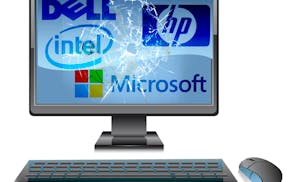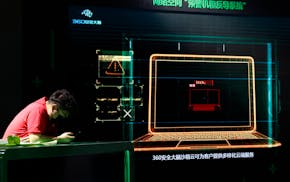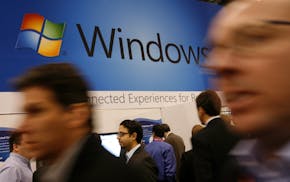My recent column about discarding rather than upgrading a five-year-old Windows PC brought a protest from some fans of Linux, the alternative PC operating system. They argue that it's better to keep an old PC and speed it up by replacing Windows with Linux, which has more modest system requirements.
Jason Detzel of Maplewood converted a nine-year-old Windows laptop to Linux after upgrading its RAM (random access memory) to 1 gigabyte.
"I'm blown away how fast this system runs," Detzel said. "If I stick with Web browsing, e-mail and downloading pictures, this PC will last for several more years."
I don't recommend Linux because it's not a mainstream PC operating system (it's used mainly by people who are technically sophisticated) and it's unclear if it ever will be. See tinyurl.com/3xq2wbd for the story "The Next New Year of Linux on the Desktop: 2011?"
Using an operating system that's outside the mainstream has two disadvantages: It's harder to find a diversity of easy-to-use software, and it's more difficult to find technical help geared to the PC novice.
It's possible that Google will make Linux more popular in the near future. Google's new Chrome operating system (to be available for laptops in mid-2011) is based on Linux, and so is its successful Android operating system for smart phones, which could move to PCs. But it's unclear how popular they will be. For details about Linux see tinyurl.com/293na7.
QI have an old Compaq computer that I'd like to give away, and I'm trying to decide how to clean it up. If I reinstall the Windows operating system and original software with a recovery disk, would that affect the extra RAM or the DVD drive I installed? How else can I clean up the PC?
BILL STORMES, ST. JOHNS, FLA.
AIf you reinstall Windows, the computer will easily find and use the RAM memory you added since you bought the PC. But you'll need to reinstall the software drivers for the DVD drive. If you don't have the original disk that came with the drive, check the manufacturer's website.
One way to clean up your computer is to use an "eraser" program. You'll find several, including some that are free, at tinyurl.com/38rybkh. Read the product summaries carefully. Some programs automatically erase traces of your Web browsing. Others overwrite sections of your hard drive so that the information stored there is permanently destroyed. Be sure to have Windows recovery disks on hand, just in case part of the operating system accidentally gets erased.
E-mail tech questions to steve.j.alexander @gmail.com, or write to Tech Q&A, 425 Portland Av., Minneapolis, MN 55488-0002. Include name, city and telephone number.

Alexander: A beeping computer is telling you what's gone wrong inside

Alexander: How to stop deleted iPhone e-mails from coming back

Alexander: Refurbished PCs may need a BIOS update to use new components

Alexander: Windows 11 not always to blame for browser or e-mail problems


